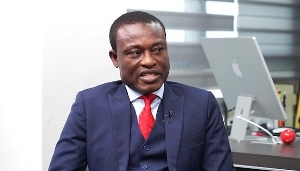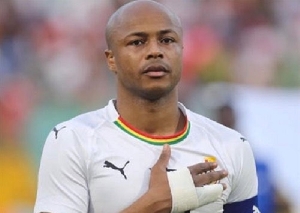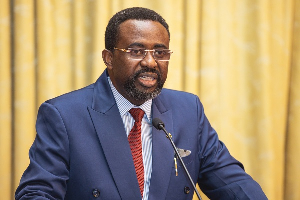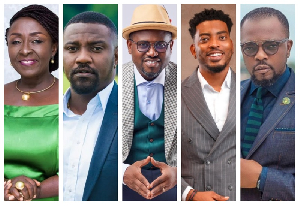The West African (here after WA) sub-region is extremely unique for unseemly greater things than one will ever imagine. Each day within the West African sub-region is packed with niceties. Dichotomising the WA sub-region with the other parts of the African continents generates interesting revelation. It appears that the West African Union under the headline Economic Community of West African States (ECOWAS) is so well organised both politically and economically than the rest of the sub-regions across the continent. The WA sub-region has one of the longest serving presidents in the annals of political ‘rulership’ in the flamboyant Togolese leader, Gen. Gnassingbe Eyadema. Within the last 25 years, WA sub-region has also recorded the highest military coup d’etats than any other parts of Africa; and which are recorded in countries like Ghana, Nigeria, Cote D’Ivoire, Senegal, Niger, Benin, Liberia, Gambia, Sierra Leone, etc. Again, the member states of ECOWAS happen to have flags, which look alike, and most of them in typical red, green and yellow colours. It is also funny to visualise that some of the tallest presidents in Africa can still be found in that same ECOWAS sub-region. Accidentally or incidentally, the sub-region also suffered heavily from the slaves’ trade in the late 19th and 20th Centuries.
If history is the measure of events yet to come then one is certain to soar in shaky thoughts. WA States and their history dates back to the ancient power and kingdoms of Mali, Ghana and Songhai. It was a period where traditional empires ruled to express dominion and mightiness of power among individuals or certain characters. And except the Songhai Empire, which has no semblance of name in the region but only close to Senegal, Ghana and Mali are still names of two states in this sub-region.
It may not have been a design but fearlessness, which characterised the three empires never went away. So when countries in WA saw the emergence of some coloured creatures landing at the shores of Africa through the Gulf of Guinea, they were met again with flashes of physical power from West Africa. History in Ghana teaches how the British were seriously defeated many times by the cunning Ashantes who cajoled them into the thick forest and made sure the psychological warfare in the darkness, noisy insects, beautiful mosquitoes and vagrant routes hit deep - the British - before they faced them. But those fighters from Britain that the Ashantes met later during the war were the ‘weaker solders’ only stronger physically than female mosquitoes. In fact, one can say that most of the wars between the British and Ashantes of Ghana were fought in the thick forest with the mosquitoes doing great job. And when the British survived this ordeal, they came once again to face the might of remorseless black Africans in the Ashantes. Yes, the fighters from Ashante were not scientifically trained, not using excellent weapons like those of their foes yet they showed the predatory typical of the descendants of the glorious empires of the past. And when all the men have fallen apart the Yaa Asantewaa’s will rise without shortage.
The wisdom of the empires, the degree of adaptation and the expression of ones inner-self to rule did not go as well. One’s desire to show good sense of leadership and judgement was exhibited yet again. In Nkrumah, Nnamdi Azikwe, Sekou Troare, H. Boigney etc, West Africa and Africa in general rose to the independence struggle with Ghana leading the way in the Sub-Saharan Africa. They proved the wisdom in them to the existence of colonial nonsense. So when Nkrumah said ‘we prefer self government in danger than to servitude in tranquillity’, he was inevitably enunciating the power and wisdom of the black African who ‘… is capable of managing his own affairs’, and surely he meant exactly that.
In spite of the tremendous threat in slaves trade and the colonial rule, West African States have maintained their colourful traditions till today. This eminent feat is never so talked about easily. They have preserved tradition to its full, and gone further to preserve the remains of colonial damage as worthy prove to the world and people who treasure history; at least, Bill Clinton and George Bush know that very well. In addition to this, Ghana for one continues to uphold dignity in the descendants of slavery and hosts Pan African Historical and Theatre Festival (PANAFEST) where brothers and sisters in the diaspora are embraced back to strengthen the bond which is never yet to die.
Over time however, things have changed and changed so well in the last quarter of the 20th century. Among the glaring changes is the call for institutionalising democracy in most if not all countries on the globe. And when the world gloats over what is democracy, West African States never saw that as a difficult thing to adapt. The region has experienced turbulent, waves length of power struggle perhaps than any part in the world during various struggle for supremacy. There then, power was adored and that has still been translated into the ‘new world’ of today’s democracy. For, West Africans are known to treasure tradition and they cannot accept democracy and leave other forms and details of colonial power behind.
Like the past empires, where only organised groups can overthrow and perhaps kill the king and set up a new nation of its own with new laws, the picture is still persisting. In Burkina Faso, Gambia, Liberia, Nigeria, Ghana, Benin, Togo and Sierra Leone, military rulers with nice power were changed thru new level of internal power struggle. Then, the new leaders formed their own democratic laws (mind you, with a lot of full stops and commas of their own), which make it difficult for such leaders to lose the set democratic elections. It is a situation as reflected in the laws, which guarantee such leaders of presidency status. Apart from Nigeria and Ghana especially, where some extra patience proved productive by waiting till the incumbency has been trapped by his/her laws and threw them out of ‘rulership’, power struggle is still a feature which is a threat to peace.
In WA, there are always two electoral commissions: the official one by the incumbency and the unofficial one (may be official too) by the opposition party or parties. The good news is that it always takes the unofficial electoral commission to announce the result of the elections first before the official electoral commission announces its own later. The opposition electoral commission much often gives victory to the opposition party (or parties) and the official commission gives victory to the incumbency. See, Moshood Abiola claimed to have won the election in Nigeria in 1993. NPP and Prof. Adu-Boahen ‘won’ the presidential election of 1992 in Ghana. Monsieur E. Bob Akitani claimed victory of the 2003 presidential election in Togo. [Un]fortunately, none of those ‘newly and democratically’ elected presidents ruled but rather they enjoyed their presidency in quietness. The opposition party in Zimbabwe, being led by the vocalist Mr. Morgan Tsvangirai recently copied this characteristic feature on elections in the West African States. Yet again, it is a feature, which will sweep across the rest of the continent with West Africa always as pacesetters.
The electoral results do not only make some parties losers in West Africa, it also leaves in their trails some amazing feats never exhibited in greater recognition in other parts of the world. Opposition parties are often very vocal. Their leaders are so quick, smart and active. Moshood Abiola did not announce his election victory in Nigeria but outside the country when he was touring some developed countries. He kept announcing his presidency victory given him by the ‘unofficial’ electoral commission. In Togo, Monsieur Bob Akitani was brave. He announced his election victory in Togo, formed his cabinet before the official electoral commission of Togo released its official results. When journalists trooped to congratulate him (Bob Akitani) and to ask for the inauguration day, the man’s cell phone has been swished off till today. He is no more in his house and some Togolese are still shocked of the president’s neglect and attitude. Do you find this a joke? Wait till you arrive in Ghana. The opposition party (NPP) had some good lawyers and writers. So in 1992, the party did the right thing and published its election results in a book titled the ‘Stolen Verdict’. In that same stolen verdict election, Gen. Erskine was a presidential candidate who was handed a good deal. Rumour says the man had zero vote count at the constituency where he and his family and some supporters did cast their vote in 1992. But he was rewarded with some votes at other pulling stations. The good thing here is, every vote is and has to be counted, said Al Gore, and it does not matter even if it is not from the constituency where one wanted most.
The WA sub-region is also noted for the way some personalities get vanished and never come back. These personalities are either associated with presidency or close to it. Do you remember Moshood Abiola of Nigeria? People are still waiting for the results or answers to the cause of his death. Prof. Adu-Boahen of Ghana was wise, justifying a lesson that it is by no means he was a professor. He went underground and till today has not spoken anything of elections and presidency after the stolen verdict was published. Yes, people are still waiting for the ‘resurrection’ and the appearance of Bob Akitani to answer the questions and charges of neglect for Togolese who voted him as president. You may also have to be informed that Gen. Sanni Abacha of Nigeria also went quietly without reason for his disappearance. One can pre-empt that things in West Africa would not have been chaotic if Abacha was around. That man established history on how he handled the rebels in Sierra Leone. In Burkina Faso, the handsome looking soldier, the late Captain Thomas Sankara was given a missing ticket by his colleague now President Blaise Campoare. Except Sargent Doe of Liberia who was killed while crying to John Koromah and co, presidential disappearance has been a feature in West Africa. The only presidents who have come close to the way West Africans do their things on presidential disappearance were Kabila Sr., Jonas Savimbi and Mobotu Sese Seko.
The West African sub-region has some of the best rebels in Africa and the World. They are just rebels indeed. These are people you see who do not wear military boots, helmets and protective shields. They wear dark and heavily patched trousers or pants, bear chest, and the only visible thing among them is the gun. They are simply rebels who do not care what they are shooting at. They just shoot and do so as long as there are bullets. If you did not know, one of the rebel commanders in Sierra Leone was called Commander Snake. Sorry but Fodah Sanko died only last month but you should have seen him too. He was a leader of one of the troublesome rebels group in Sierra Leone. If you still want to see some of these wonderful rebels of West Africa, then see the pictures on Liberia before Charles Taylor hands over power on the 11th of August. You may be happy to see Captain Sheriff there!
Still in West Africa, presidents can be changed in days, weeks, months and years. The time in the constitution does not matter much. The important thing is the power struggle. In Nigeria and Ghana Gen. Obansanjo (and now president) and Flt. Leut. Rawlings changed presidents and handed over power again in three (3) months respectively. In Burkina Faso, Captain Sankara was changed in few months too. President Menezes of Sao Tome (an Island in the Gulf of Guinea, closer to Nigeria) has had his presidency changed for some days. But the leaders of the coup plotters had pity on the president and allowed him back into the country challenging him to have his acts and houses ‘cleaned’.
It is also coming up that one easy way to ask a president of West Africa to leave office is to wait till he is out of the country for official duty. Then the military group rises, take over and ask the president to wait at where he was. After all staying outside is a good way of working hard and to bring home money to boost the economy. Dr. Kwame Nkrumah of Ghana was taught that lesson in 1966. And recently, President Menezes of Sao Tome was second to learn that good lesson. When he was in Nigeria to seek the support of the government in drilling its oil in the country the military took over and asked him to wait there for some three days.
In sports, West Africa still excels and leads the rest of the continent of its unique character. Ghana was the first country to win the African Nations Cup for four (4) times. In Nigeria and Senegal, the sub-region still boast of amazing World Cup surprises. Great names in soccer are also found in Roger Miller, Thomas Nkono, Abedi Pele, Abdul Razak, Mohammed Polo, Ogbedami, Oppong Weah, Abdul Diouf, etc. For women soccer and Ghana and Nigeria are there. There are some individual Nigerian women and men competing effectively in athletics as well. Sadly, Before Marc Vivine Foe’s tragic death on the field, West Africa in Nigeria’s Okwaragi has died in the same process long years ago. In another sad note, the most horrific African soccer tragedy at the stadium is also found in Ghana at 2002.
In summary, yes, the longest serving president in Africa. First to have a country gained independence in Sub-Saharan Africa. First in soccer. A location, which was seriously hit by slaves trade in the past. First to have had two sitting and visiting US Presidents start their tour of Africa. And first to have a president in the history of Africa, to have been indicted by the UN Court for war crimes against humanity. Great West Africa for you, folks!
I welcome criticism and comments.



















